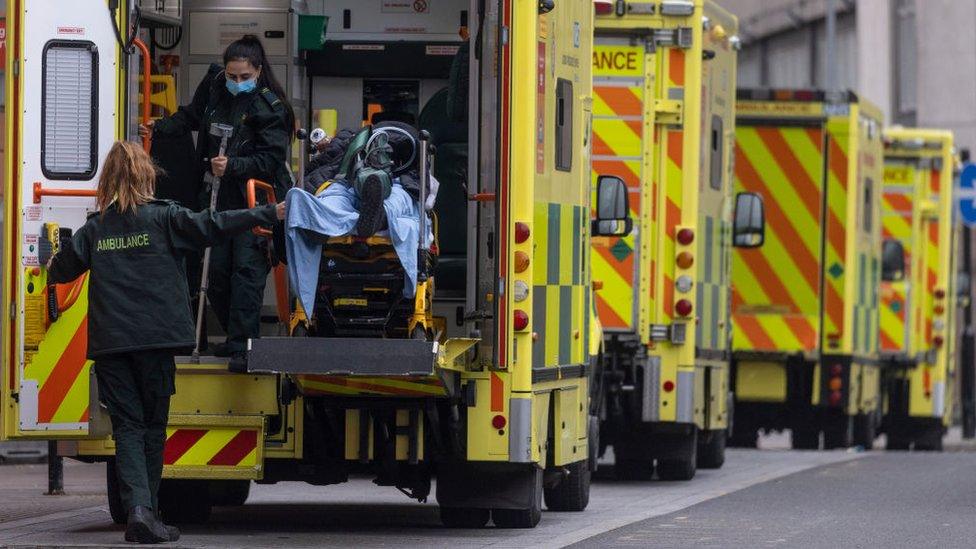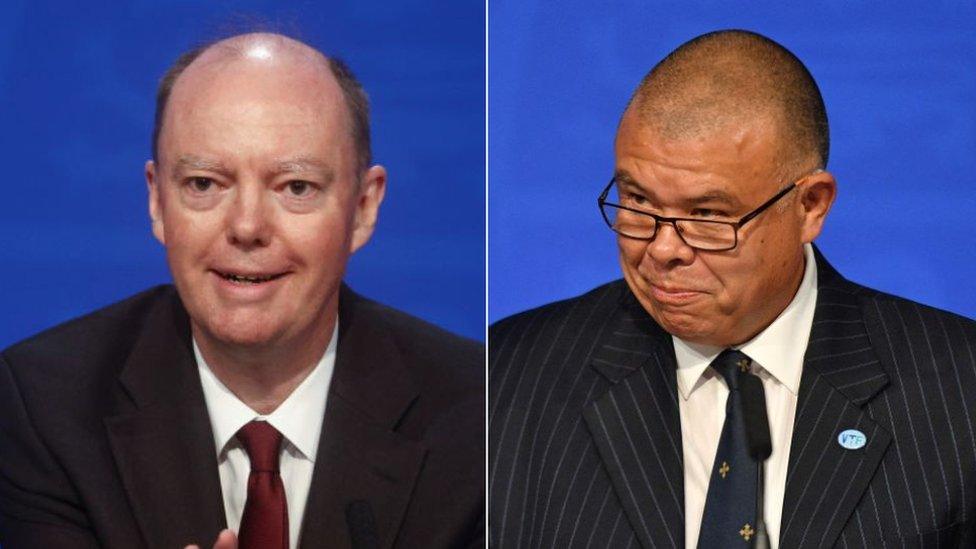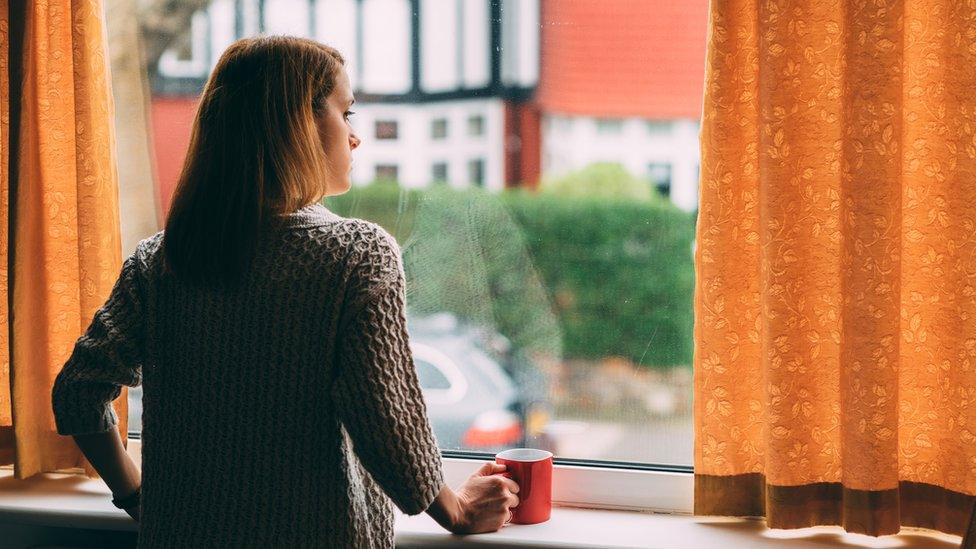Covid: Next few days crucial for the NHS, says health boss
- Published

The next few days are crucial in understanding the impact of Omicron on the NHS, a health boss has said.
Chris Hopson, chief executive of NHS Providers, which represents health trusts, said hospital admissions are rising across the country but what could happen next is unclear.
He warned ministers "must be ready to introduce new restrictions at pace if they're needed".
But the health secretary said any extra measures must be a "last resort".
Writing on Twitter, external, Mr Hopson said staff were working "flat out" and the NHS was now under "different, arguably more" pressure compared to last January because more planned treatments were being carried out, the booster vaccination campaign was using up significant resources and staff absences were having a greater impact.
England has reported 162,572 new cases - a record number for the fifth day in a row - as well as 154 deaths within 28 days of a positive test.
Scotland, Wales and Northern Ireland did not report figures on Saturday.
The number of hospital admissions in England are at their highest level since January 2021, according to the latest figures, while NHS hospital staff absences due to Covid have nearly doubled in a month.
Mr Hopson said there was evidence infections peaked in London before Christmas and had plateaued since but the future trajectory "remains very unclear", ranging from hospital admissions plateauing and then dropping to numbers rapidly increasing.
"If the evidence shows that we are getting very significant numbers of people coming into hospital with Covid, then the government needs to be ready to introduce further restrictions at pace," he told the BBC.
He said there were currently not the large numbers of severely ill older people that were seen in previous peaks and intensive care occupancy was broadly stable.
However, he said there were worries about the possible impact of intergenerational mixing over Christmas.
University Hospital of North Tees in Stockton has become the latest of more than a dozen hospitals to temporarily suspend routine visits because of rising infections.
The doctors' union, the British Medical Association, has said further public health measures should be introduced as a matter or urgency.
The association's council chairman, Dr Chaand Nagpaul, said it was "wholly erroneous to talk about the risk of the NHS becoming overwhelmed".
The new year began with the health service "already overwhelmed, in a parlous state, and with patient care suffering", he said.
Writing in the Daily Mail, external, Sajid Javid warned it was "inevitable" there would be a big increase in people needing NHS care over the next month due to the time lag between infections and hospital admissions.
"This will likely test the limits of finite NHS capacity even more than a typical winter," he added.


The problem facing the government is that the window to suppress the peak with restrictions may already have passed.
Modelling produced for government by Warwick University suggests even a return to lockdown with only schools open has virtually no impact on hospital admissions now.
To have had a significant impact, measures would need to have been introduced on Boxing Day or a week earlier.
But even then the argument for them was unclear - in both scenarios infections and hospital admissions rebound once restrictions are lifted. Largely all it achieves is delaying and spreading out illness.
That could have been of benefit by evening out the pressure on the NHS.
But there is, of course, the wider costs of restrictions to society, the economy and mental health to factor in.
Some say it would also have bought you time to carry out more vaccinations, but with nine in 10 of the most vulnerable boosted and evidence protection wanes over time this may actually be the point in time when we have the most immunity across the population.
There are no simple solutions to this Omicron wave - and the options that the government did have may well have gone.

England is currently under Plan B restrictions, which includes mandatory masks in most indoor public places, Covid passes for nightclubs and other large venues and guidance to work from home if possible.
The measures are set to expire six weeks after implementation, with a review after three weeks, which is expected on or close to 4 January.
There are already tougher restrictions for hospitality venues in Scotland, Wales and Northern Ireland.

THE GREATEST JOURNEY OF THEM ALL: Can they really make it around the world in 80 days?
FILMS FOR THE WHOLE FAMILY: Enjoy a cosy night in with BBC iPlayer

Related topics
- Published1 January 2022

- Published31 December 2021

- Published4 January 2022

- Published20 December 2023
